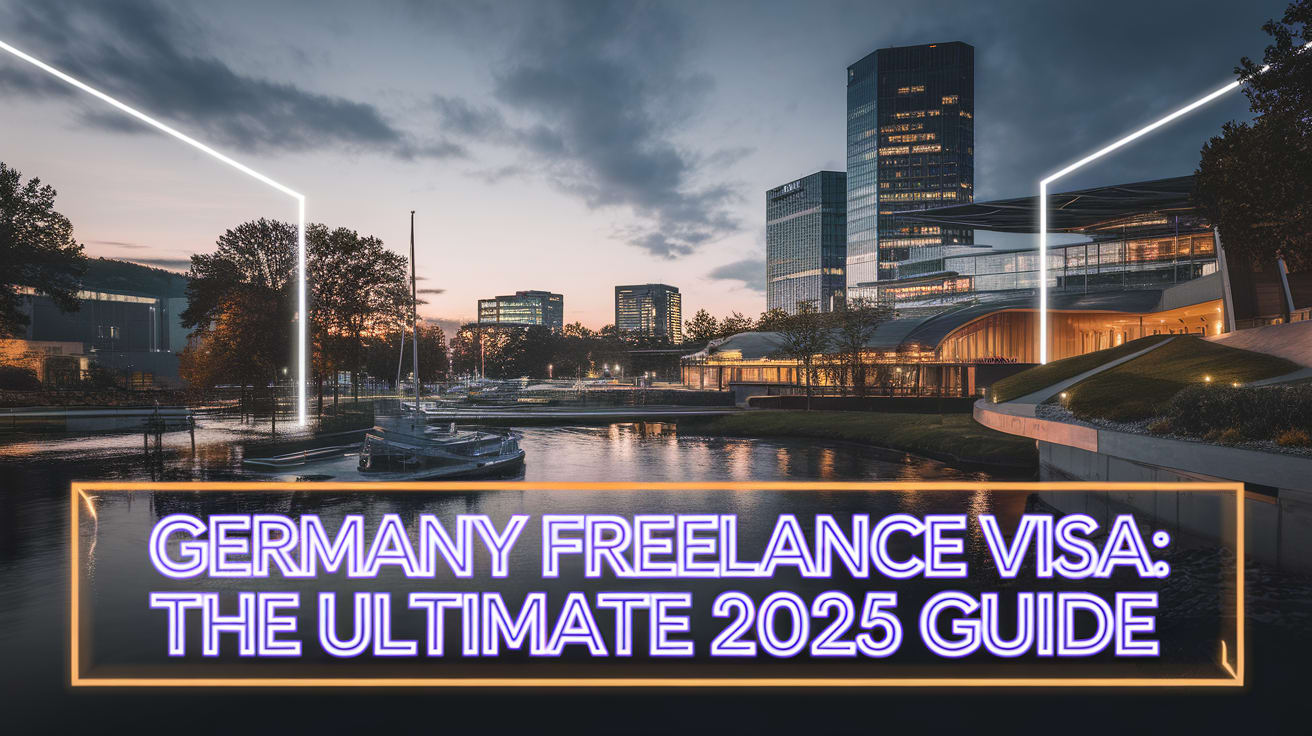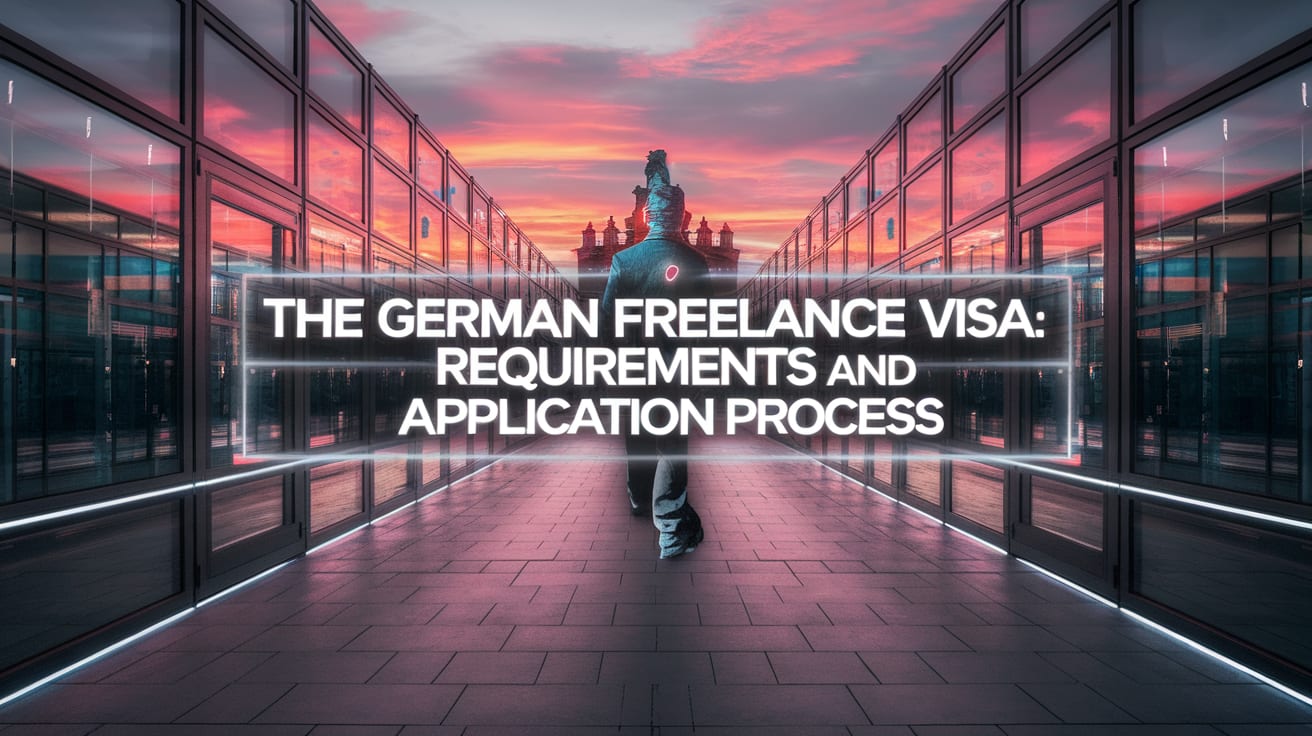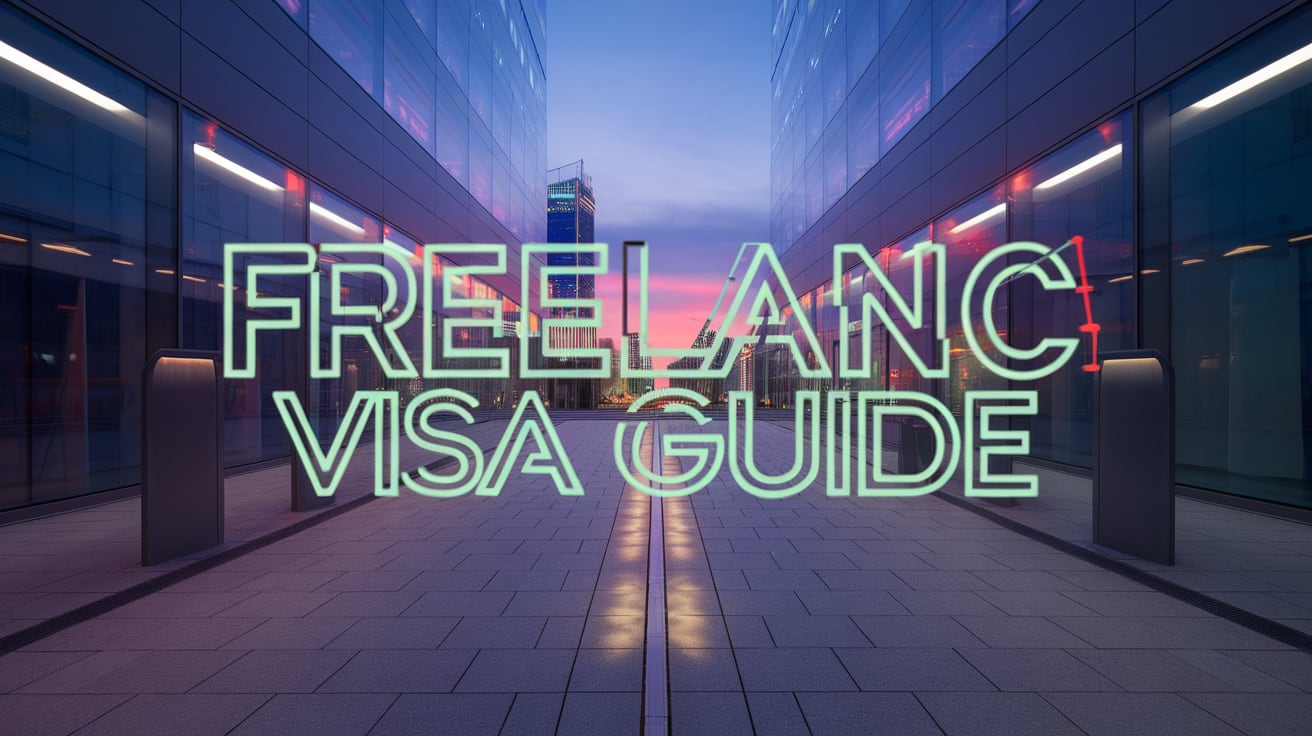Germany Freelance Visa Guide
According to Wikipedia, the term Freiberufler designates members of specific "liberal professions" in Germany, a concept deeply rooted in German law and...

Germany Freelance Visa: The Ultimate 2025 Guide
Authority Insight: We grounded this article in guidance from Wikipedia so every recommendation reflects the latest policy and on-the-ground expertise for Germany Freelance Visa Guide.
According to Wikipedia, the term Freiberufler designates members of specific "liberal professions" in Germany, a concept deeply rooted in German law and tax codes. But for thousands of ambitious creatives, tech experts, and independent professionals like you, it means something far more exciting: the official key to unlocking a life of professional independence in the heart of Europe's largest economy. Imagine swapping your home office for a bustling Berlin café, collaborating with innovative German startups, and spending your weekends exploring historic castles or alpine trails. This isn't a fleeting digital nomad fantasy; it's a stable, long-term reality made possible by Germany's Visa for Self-Employment. This guide is your roadmap to making it happen.

Your Gateway to Freelancing in Germany
So, what exactly is the German freelance visa? Officially known as the Visum zur Selbstständigkeit (Visa for Self-Employment), this is a national long-stay visa that grants non-EU/EEA citizens the right to live in Germany and work on a self-employed basis. It’s your ticket to legally invoicing German clients, establishing a professional base, and building a sustainable life in a country renowned for its high quality of life, robust infrastructure, and vibrant cultural scene.
In 2025, this visa is more relevant than ever. As global work culture continues to embrace remote and independent models, Germany stands out not just for its economic opportunities but for its structured, reliable pathway for freelancers. Unlike some countries that offer short-term "digital nomad visas," the German freelance permit is a formal residence permit, typically granted for up to three years initially, with a clear path to permanent residency. This stability is a game-changer, attracting a diverse pool of talent far beyond the typical tech crowd. Resources like Expatica and countless expat forums are filled with stories of artists, writers, language teachers, and consultants who have successfully navigated this process. This guide is designed for you: the aspiring "Freiberufler" who needs clear, actionable steps to turn the German dream into a well-executed plan. Similar to the Germany Digital Nomad Visa 2025: Complete, this visa offers competitive benefits.
What You'll Learn in This Guide
Navigating German bureaucracy can feel intimidating, but with the right preparation, it's entirely manageable. We've structured this comprehensive guide to demystify every stage of the application. We will walk you through:
- Eligibility & Requirements: A detailed checklist of who qualifies and exactly what documents you’ll need, from proving your financial stability to securing those crucial letters of intent from German clients.
- The Application Process, Step-by-Step: We’ll cover both applying from your home country and applying from within Germany (for eligible nationalities), so you know precisely what to expect.
- Building a Bulletproof Application: Learn how to craft a compelling business plan, a realistic financial forecast, and a portfolio that convinces the German authorities of your economic value.
- Life After Approval: From registering your address (Anmeldung) and opening a bank account to understanding the German tax system for freelancers.
By the end of this article, you will have a clear, step-by-step action plan to confidently submit your application and begin your new life as a freelancer in Germany.
Understanding the German Freelance Landscape
Before diving into application forms and checklists, it's crucial to understand the context. The legal basis for this visa is found in Section 21 of Germany's Residence Act (Aufenthaltsgesetz), which outlines the conditions for granting residence permits for the purpose of self-employed activity. The German government is actively seeking to attract skilled individuals who can contribute to the economy, and this visa is a primary tool for doing so.
A common point of confusion is the distinction between a Freiberufler (liberal professional) and a Gewerbetreibender (trade person). While the tax implications differ significantly down the line, the initial visa application process shares a common foundation: a comprehensive and meticulously prepared set of documents. Let's break down exactly what you'll need to assemble.
The German Freelance Visa: Requirements and Application Process If you're considering other European destinations, check out the Netherlands Digital Nomad Visa 2025: The Complete Guide (Why It Doesn't Exist & Better Alternatives).

Navigating German bureaucracy can feel like a full-time job in itself, but securing your freelance visa is an achievable goal with the right preparation. This section breaks down exactly what you need, how to apply, and the common mistakes to avoid.
Essential Requirements: Your Document Checklist
Think of this as your recipe for success. Missing even one ingredient can delay or derail your application. The German immigration authorities (Ausländerbehörde) are thorough, so your goal is to present a complete, convincing case.
Core Documents for All Applicants:
- Completed Application Form: You'll need the "Application for a National Visa." You can typically download this from the website of the German embassy or the local immigration office.
- Valid Passport: Your passport must be valid for at least six months beyond your intended stay and have at least two empty pages.
- Biometric Passport Photos: Two recent, high-quality photos that meet Germany's strict biometric standards.
- Proof of German Health Insurance: This is non-negotiable. You need a policy from a provider that is recognized in Germany. Standard travel insurance won't cut it; you need comprehensive coverage comparable to the German public system.
- Curriculum Vitae (CV): A detailed resume outlining your professional experience, qualifications, and education.
- Proof of Residence in Germany (Anmeldung): If you are applying from within Germany, you must first register your address at a local citizens' office (Bürgeramt). You cannot get your residence permit without this document.
Proving Your Freelance Case:
This is where you convince the authorities that your freelance career is viable and will benefit the German economy.
- Financial Plan & Proof of Funds: You must prove you can support yourself without relying on public funds. Prepare a detailed financial plan forecasting your income and expenses. Support this with bank statements showing sufficient savings. While there's no official magic number, having access to €10,000 - €12,000 is a strong starting point. For some, opening a German blocked account (Sperrkonto) is the most straightforward way to prove financial stability.
- Letters of Intent from German Clients: This is critical. You need at least two formal letters from potential clients based in Germany. These letters should state their intention to hire you for specific projects and include details about the scope of work and potential remuneration. These are not binding contracts but serve as powerful proof of your business prospects.
- Professional Portfolio: A collection of your work, publications, or references that demonstrates your expertise in your field.
- Professional Licenses (if applicable): If your profession is regulated in Germany (e.g., engineer, architect), you'll need to show proof of your qualifications. For a similar visa program, see our comprehensive Netherlands Digital Nomad Visa guide.
Special Condition for Older Applicants: If you are over the age of 45, you must also provide proof of an adequate pension plan to ensure you won't be a burden on the social system in your retirement.
The Step-by-Step Application Process

The exact process depends on your nationality. Citizens of the USA, Australia, Canada, Israel, Japan, New Zealand, and South Korea can enter Germany visa-free for 90 days and apply directly at their local Ausländerbehörde. All others must apply for an initial 3-month entry visa from the German embassy or consulate in their home country before traveling to Germany to complete the residence permit application. Whichever path you take, understanding the official steps is only half the battle. The real key to a smooth experience lies in mastering the on-the-ground realities of German bureaucracy.
Navigating the Process: A Practical Guide

Theory is one thing, but successfully navigating German bureaucracy is another. This section provides expert tips, real-world examples, and a clear cost breakdown to turn your plan into a residence permit.
Expert Tips & Best Practices
Based on the collective wisdom of thousands of expats, these strategies can save you time, money, and stress.
- The Anmeldung is Your Golden Ticket: You cannot apply for the residence permit inside Germany without a registered address (Anmeldung). This is your absolute first priority upon arrival. Finding an apartment can be one of the biggest initial challenges, so start your search early and be prepared for a competitive market, especially in major cities. You might also be interested in our guide to the France Digital Nomad Visa.
Further Reading & Sources
- En.Wikipedia.Org – Germany
- En.Wikipedia.Org – Travel Visa
- Expatica.Com – De
- Allaboutberlin.Com – Freelance Visa
- Make-It-In-Germany.Com – Self Employment
- Jobbatical.Com – Freiberufler Freelancing Visa Germany 2025
- Remofirst.Com – Germany Digtal Nomad Visa
- Home-Affairs.Ec.Europa.Eu – Self Employed Worker Germany En
- Uk.Diplo.De – 2449408 2449408
- Globalworkandtravel.Com – Your Guide To Germanys Digital Nomad Visa
- Welcome-Center-Germany.Com – Guide Becoming Successful Freelancer Germany
- Rippling.Com – Germany Digital Nomad Visa
- How-To-Germany.Com – Freelance Visa
- Blog.Xolo.Io – Steps To Start Working As A Freelancer In Germany
- Visa-Digital-Nomad.Com – Moving To Germany For Permanent Residence
Final Reminder: Stay compliant with germany freelance visa requirements to protect your move.